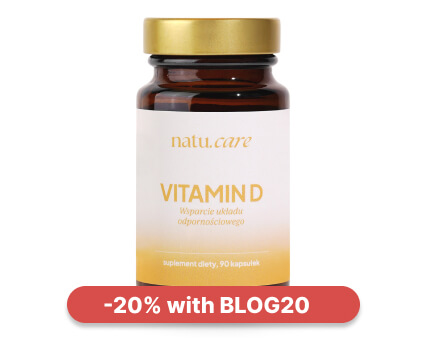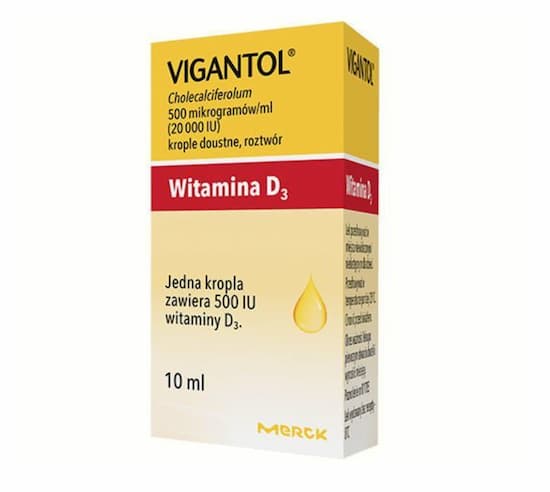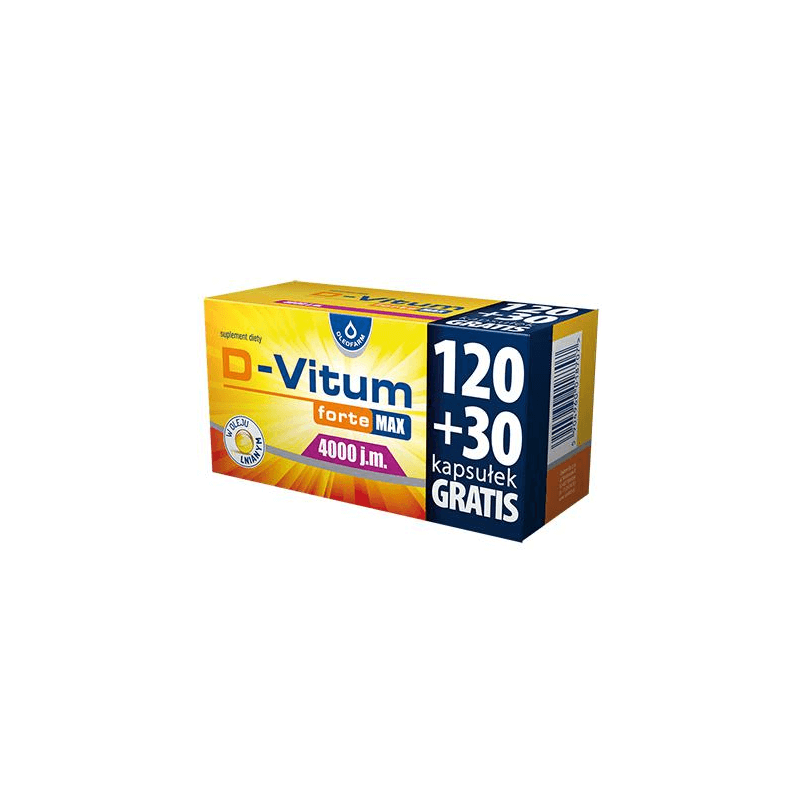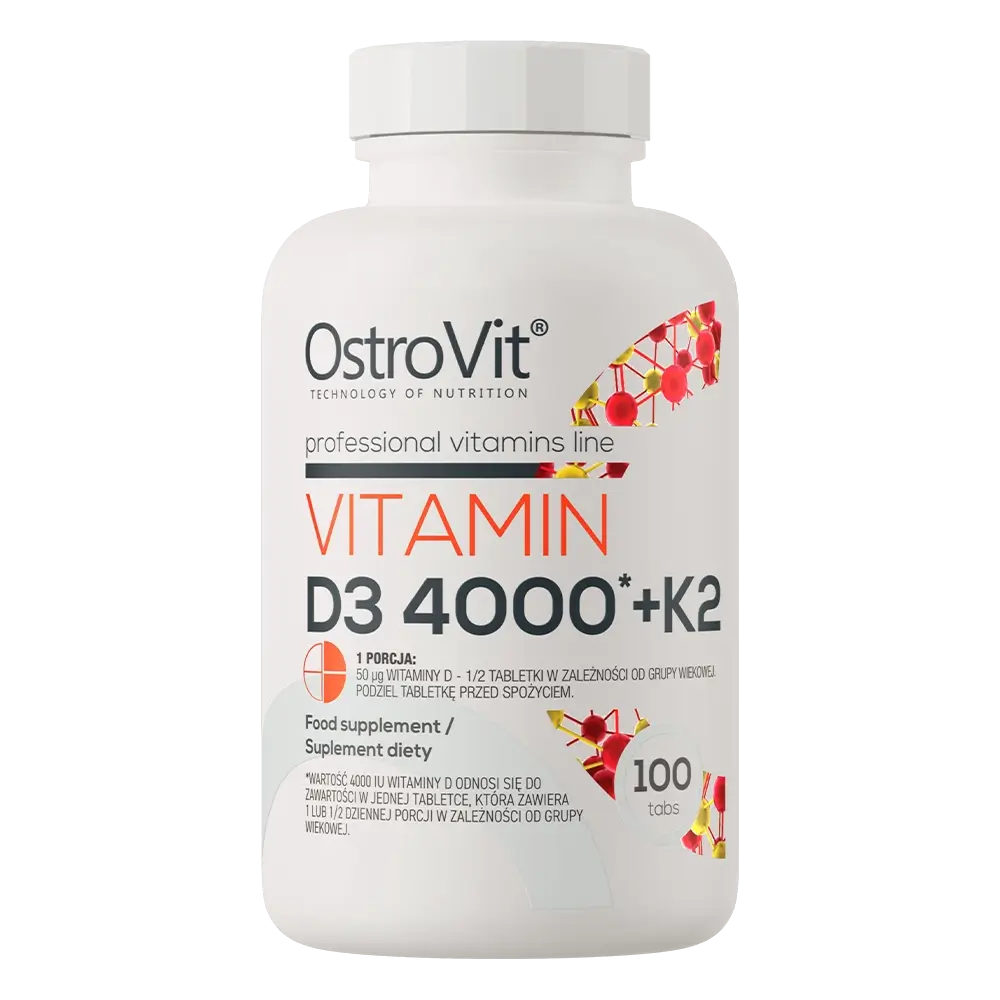Maximum vitamin D3 dose - does a bump dose make sense?
As with many substances - the dose makes the poison. Vitamin D can support our skeletal system, immunity and heart, but it can also damage the kidneys or cause calcification of the arteries.


Learn more about our editorial process
.

Learn more about our editorial process
.

Learn more about our editorial process
.

Learn more about our editorial process
.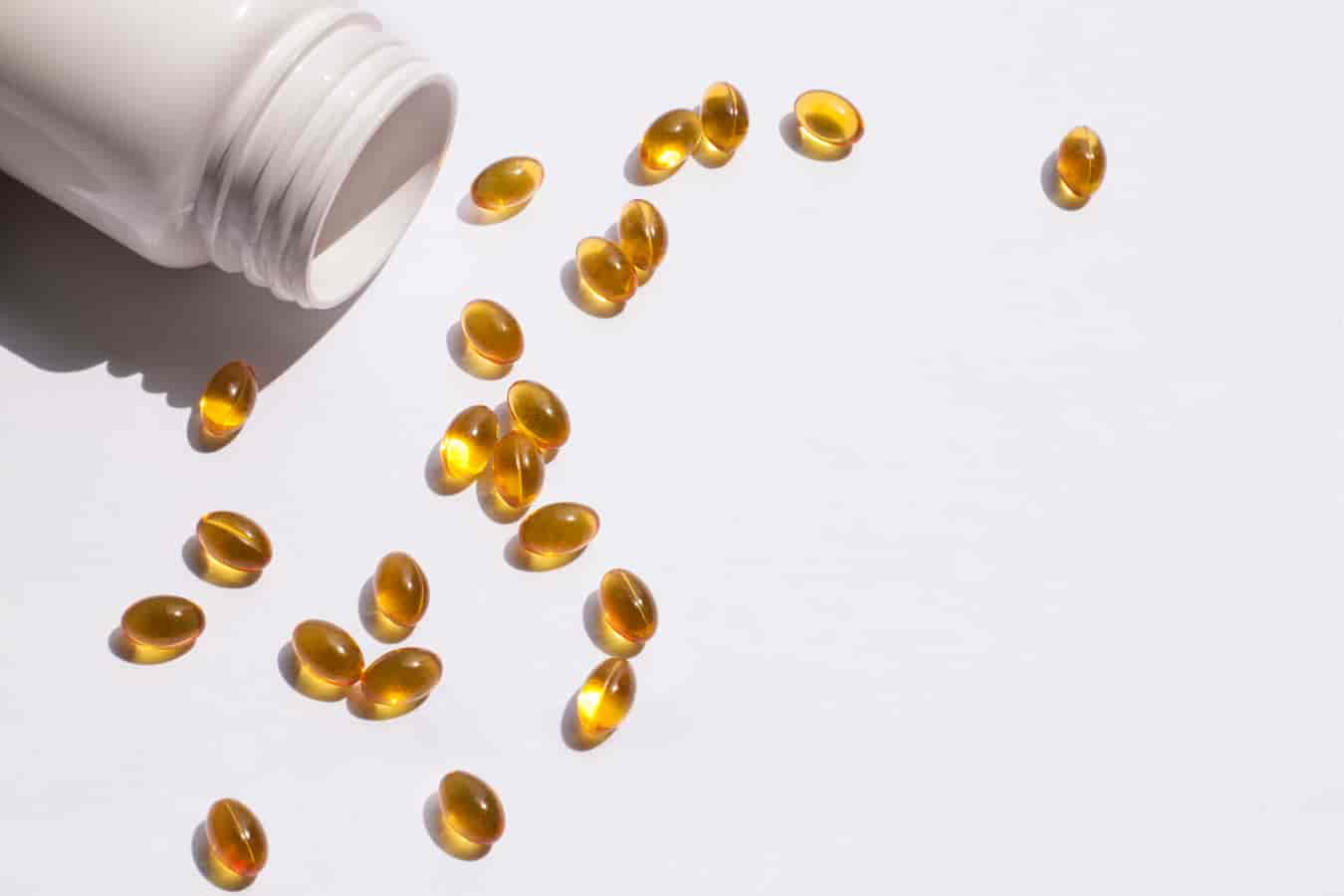
Why you can trust us
Articles on Natu.Care are written based on scientific research, data from government websites and other reliable sources. The texts are written in cooperation with doctors, nutritionists and other health and beauty experts. Articles are reviewed before publication and during significant updates.
.Learn more about our editorial process
.Information about advertisements
Content on Natu.Care may contain links to products from the sale of which we may receive a commission. When creating content, we adhere to high editorial standards and take care to be objective about the products discussed. The presence of affiliate links is not dictated by our partners, and we select the products we review ourselves completely independently.
.Learn more about our terms and Conditions
.Wondering what is the maximum dose of vitamin D you can take? What if you exceed that dose day after day? And most importantly - does it make sense to take high doses? Find out what nutritionist Marta Kaczorek thinks on this subject.
Description of contents:
- What is the maximum daily dose of vitamin D? .
- Lethal dose of vitamin D .
- Daily requirement for vitamin D .
- Vitamin D - shock dose. Why NOT? Expert opinion
- Summary .

Zobacz, co dla Twojego zdrowia może zrobić Natu.Care Witamina D 2000 IU. -15% z kodem BLOG15
Natu.Care Witamina D 2000 IU
Natu.Care Witamina D 2000 IU wspiera prawidłowe działanie układu odpornościowego, utrzymanie zdrowych kości i zębów oraz utrzymanie prawidłowych funkcji serca, nerek i układu mięśniowego.
Sprawdź cenę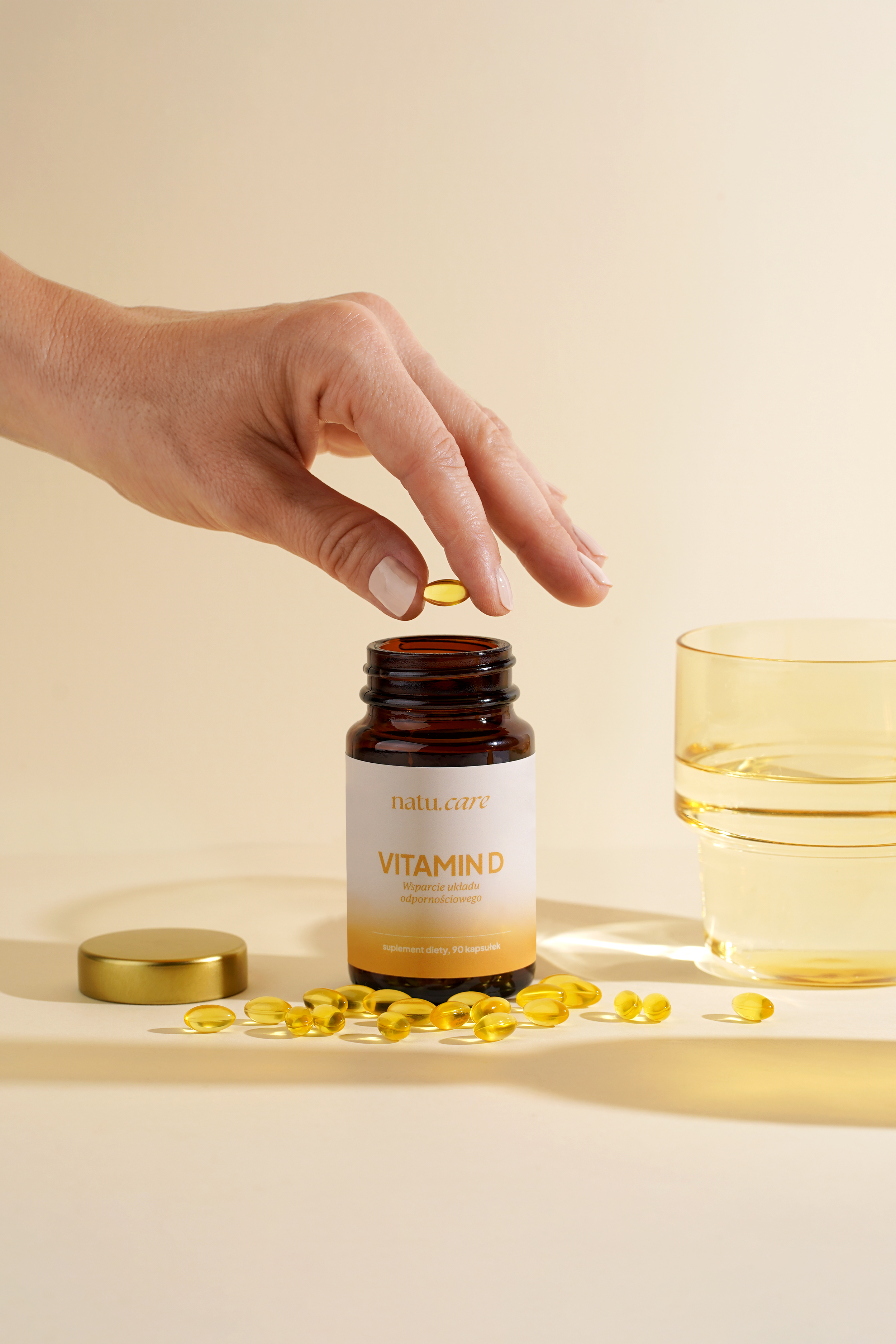
Świetny produkt, tabletki są małe i wygodne do połknięcia. Plus za wysoką jakość!Joanna
See also:
- Vitamin D3
- Vitamin D3
- Vitamin D3 drops .
- Vitamin D overdose
- Vitamin D dosage + standards and recommendations .
- Vitamin D3 K2 do you need to combine them? .
- What is vitamin D?
- Vitamin D deficiency .
What is the maximum daily intake of vitamin D?
.
The maximum safe daily dose of vitamin D for you depends on your age, health, complexion, diet, lifestyle and official recommendations. You may not be satisfied with this answer. Believe me, if anyone gives you a specific dose without knowing you and your medical history - they will most likely mislead you.
In writing this article, I found numerous forums where users are asking about dosage, exceeding daily doses and the risks involved.
I will present some interesting facts so that you are not left without answers.
- Most healthy people need daily 800-4000and IU of vitamin D.
- In the spring and summer 15 minutes of sun exposure, between 10am and 3pm with arms and legs uncovered, will give you as much as supplementation with 2000 IU vitamin D.
- Research shows that taking 60,000 IU of vitamin D daily for several months can cause toxicity (harmful excess)and.
Lethal dose of vitamin D
.
There is no conclusive data on the lethal dose of vitamin D. Not surprisingly - a human experiment would be risky. However, I was able to find a very interesting description of an extreme overdose of vitamin Dand.
In a nursing home in the Netherlands, two patients (aged 90 and 95) received accidental single doses of 2 000 000 IU of vitamin D3. Yes, you can see the six zeros. This did not cause clinically apparent toxicity requiring hospitalisation. Elevated plasma calcium levels were observed for a further 2 weeks. Patients survived.
.
Is this already proof that it is possible to take massive doses of vitamin D? No.
I have found case reports in which regular daily intake of high doses of vitamin D resulted in dangerous health effects. Patients with vitamin D toxicity come from many countries - Germany , the UK or India. In Poland, such cases are also reportedand.
Daily vitamin D requirements
.
Do you know what your daily vitamin D requirement is? Did you know that it depends on your age, your lifestyle, your diet and even your complexion, among other things? Take a look at my article with the current recommendations for vitamin D supplementation. There you will find a concrete dose of knowledge.
Natu.Care Vitamin D 2000 UI
Product description
Vitamin D plays a crucial role in our health and well-being. It affects calcium and phosphate metabolism, which translates to healthy bones and teeth. It also helps regulate the immune system, and studies indicate its influence on the functioning of the nervous system.
Vitamin D, although called a “vitamin,” is actually a prohormone that our body produces on its own, primarily under the influence of sunlight. Unfortunately, our modern lifestyle contributes to deficiencies of this essential vitamin. Working in enclosed office buildings, using (necessary!) SPF creams, and covering the body with clothing all make it very difficult, if not impossible, to obtain adequate levels of vitamin D from sunlight. This is why appropriate, year-round supplementation is so crucial.
Vitamin D from Natu.Care is a well-tested vitamin D3 suspended in safflower oil, a plant known for its numerous health benefits. The convenient, easy-to-swallow capsule will make supplementation a part of your daily, healthy routine, improving your overall well-being.
Pros and cons
Pros:
- Ensures proper functioning of the immune system
- Supports the maintenance of healthy bones and teeth
- Maintains proper heart, kidney, and muscle function
- Tested by an independent, certified laboratory
- Convenient and easy-to-swallow capsule
- Clean composition - free from added sugar, gluten, GMOs, lactose, and without preservatives or colorants
Cons:
- None.
Additional Information
Pregnant women and breastfeeding mothers should consult a doctor before using the product. This dietary supplement is intended for a healthy adult population up to the age of 75.
OstroVit Vitamin D 4000 IU
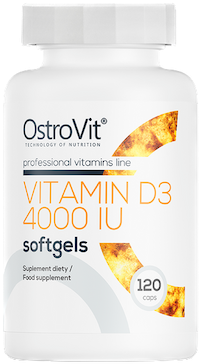
- Content vitamin D3: 4000 IU
- Form: capsules .
- Dose: 1 capsule per day .
- Sufficient for: 120 days .
Product description
OstroVit Vitamin D 4000 IU is a dietary supplement in the form of soft capsules, specially designed for peopleóing vitamin D deficiency, and especially recommended for seniorsów.
.Contains 4,000 IU of vitamin D per capsule, enabling effective dietary supplementation. The olive oil contained in the formula enhances the absorption of vitamin D, further enriching the supplement with healthy fats.
The supplement contains a wide range of vitamins and minerals.
The pack contains 120 capsules, allowing for four months of supplementation when taken with one capsule per day.
Pros and cons
OstroVit Vitamin D 4000 IU is a dietary supplement in the form of soft capsules, specially designed for peopleóing vitamin D deficiency, and especially recommended for seniorsów.
.Contains 4,000 IU of vitamin D per capsule, enabling effective dietary supplementation. The olive oil contained in the formula enhances the absorption of vitamin D, further enriching the supplement with healthy fats.
The supplement contains a wide range of vitamins and minerals.
The pack contains 120 capsules, allowing for four months of supplementation when taken with one capsule per day.
Additional information
OstroVit Vitamin D 4000 IU is a dietary supplement in the form of soft capsules, specially designed for peopleóing vitamin D deficiency, and especially recommended for seniorsów.
.Contains 4,000 IU of vitamin D per capsule, enabling effective dietary supplementation. The olive oil contained in the formula enhances the absorption of vitamin D, further enriching the supplement with healthy fats.
The supplement contains a wide range of vitamins and minerals.
The pack contains 120 capsules, allowing for four months of supplementation when taken with one capsule per day.
Dr. Jacob's Vitamin D3 drops
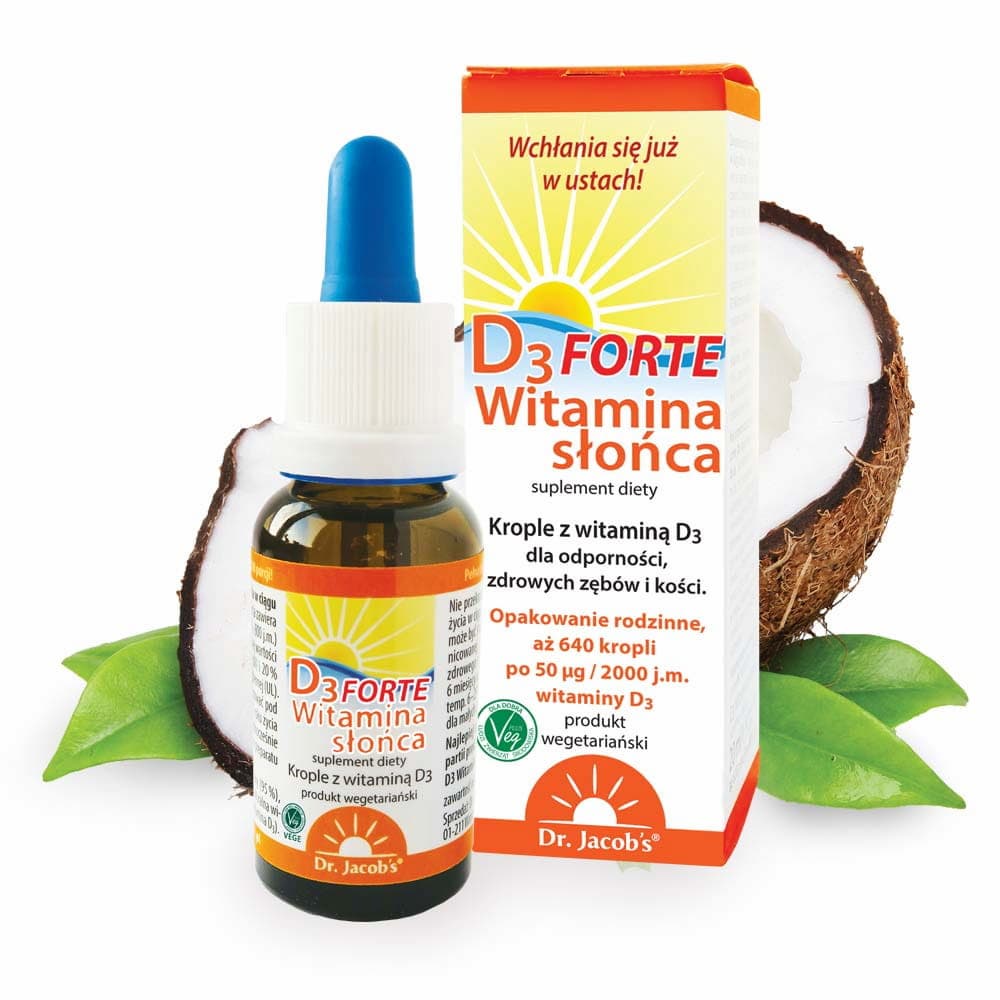
- Content vitamin D3: 800/1600 IU
- Form: drops .
- Dose: 1 or 2 drops daily .
- Sufficient for: 320–640 drops .
Product description
Sunshine Vitamin D3 FORTE is a dietary supplement containing a high dose of vitamin D3. Each drop of the product provides 800 IU of this essential vitamin for the proper functioning of the organism, whichóra supports the proper absorption of calcium and the maintenance of healthy bones, teethóra and muscles.
Pros and cons
Sunshine Vitamin D3 FORTE is a dietary supplement containing a high dose of vitamin D3. Each drop of the product provides 800 IU of this essential vitamin for the proper functioning of the organism, whichóra supports the proper absorption of calcium and the maintenance of healthy bones, teethóra and muscles.
Additional information
Sunshine Vitamin D3 FORTE is a dietary supplement containing a high dose of vitamin D3. Each drop of the product provides 800 IU of this essential vitamin for the proper functioning of the organism, whichóra supports the proper absorption of calcium and the maintenance of healthy bones, teethóra and muscles.
Vigantol witamina D3
Product description
Vigantol has been trusted by Poles for years. It is an over-the-counter medicine that you can buy at a good price at any pharmacy. It has a simple composition, without unnecessary additives and a small package that will fit into any home medicine cabinet.
Why is it worth it?
- The status of the medicine guarantees us the highest quality of the active ingredients, certainty about the dose and the effect of the preparation until the expiry date.
- Vigantol has an advantage over other over-the-counter vitamin D3 medicines because of the form of the drops.
- The drops are better absorbed by the body and do not need to be taken with a meal (unlike, for example, Vigantoletten, which is in tablet form and is recommended to be taken with a fatty meal).
Take note
- The bottle does not have a convenient dispenser. To measure the four recommended daily drops, turn the bottle upside down. The drops dispense slowly. When the liquid runs out, it is difficult to empty the bottle "dry" - a little is left inside.
- If the dispenser becomes clogged, gently tap the bottom of the bottle against the surface (tabletop, table) and then dispense the drops.
- You can use Vigantol for children, bearing in mind that 1 drop is 500 IU, and this is the requirement from the age of 3.
D-vitum
Product description
Oleofarm D-Vitum Forte Max 4000 IU is a dietary supplement in the form of capsules with high vitamin D content. The preparation is designed to supplement the diet of healthy adults over 75 years of age with this valuable active ingredient.
Pros and cons
Oleofarm D-Vitum Forte Max 4000 IU is a dietary supplement in the form of capsules with high vitamin D content. The preparation is designed to supplement the diet of healthy adults over 75 years of age with this valuable active ingredient.
Additional information
Oleofarm D-Vitum Forte Max 4000 IU is a dietary supplement in the form of capsules with high vitamin D content. The preparation is designed to supplement the diet of healthy adults over 75 years of age with this valuable active ingredient.
Expert opinion
OstroVit Vitamin D3 4000 + K2
Product description
A dietary supplement in tablets supplementing the diet with vitamin D and K. Vitamin D helps in the proper absorption and utilisation of calcium and phosphorus, and in maintaining a normal level of calcium in the blood. Vitamin K contributes to normal blood clotting and helps maintain healthy bones.
Pros and cons
A dietary supplement in tablets supplementing the diet with vitamin D and K. Vitamin D helps in the proper absorption and utilisation of calcium and phosphorus, and in maintaining a normal level of calcium in the blood. Vitamin K contributes to normal blood clotting and helps maintain healthy bones.
Additional information
A dietary supplement in tablets supplementing the diet with vitamin D and K. Vitamin D helps in the proper absorption and utilisation of calcium and phosphorus, and in maintaining a normal level of calcium in the blood. Vitamin K contributes to normal blood clotting and helps maintain healthy bones.
Expert opinion
Vitamin D impact dose
.
The use of a vitamin D shock dose (above 50 000 IU) is necessary in 99% of cases, especially if someone decides to do so without consulting a doctor. Such amounts have been used in scientific studies for rickets (R. Shah, 1994).
Internauts are looking for information about rapid vitamin D supplementation and a bump dose. According to official medical recommendations, in most cases this is not the best choice to treat the deficiency. Why?"
Vitamin D deficiency is treated according to strict medical guidelines. Patients work with their doctor to treat the deficiency, selecting doses and timing of supplementation. Patient education is very important. I explain the origin of the deficiency, how to prevent it, how to enrich one's diet and the importance of outdoor exercise. A single powerful dose will not fix several months of neglect.
Patients often want to cure a deficiency with huge doses, without understanding how vitamin D is metabolised in the body. For many years, researchers have been looking at vitamin D and its effects on our bodies. This and like any vitamin can be overdosed, so let's supplement sensibly and according to our individual needs..
 .
.
Marta Kaczorek Clinical nutritionist
See also:
Summary
.
In summary:
.- We do not know exactly the single lethal dose of vitamin D - and very well! Let's not test it.
- Taking one-time shock doses is not recommended in most cases. .
- If you have a known deficiency - talk to your doctor about treatment and follow the recommended doses. .
- Systematic, optimal supplementation is healthier than taking massive doses all at once or over a long period of time.
- In addition to supplementation, to correct a deficiency, take care of yourself! Enrich your diet, make an effort to be frequently active outdoors.
FAQ
.What is the maximum dose of vitamin D?
.The upper limit for a safe daily dose of vitamin D3 is 4,000 IU for adults, pregnant and breastfeeding women. Higher doses should be determined on an individual basis with a healthcare practitioner based on an assessment of health, needs, diet and blood tests.
How much vitamin D3 can be taken per day?
.The daily dose of vitamin D3 for adults is determined on an individual basis based on the doctor's assessment of the patient's health status, blood test results and needs. As a standard, adults can take between 2000 IU and 4000 IU per day.
Is it possible to overdose on vitamin D?
.Yes, it is possible to overdose on vitamin D3, this condition is called vitamin D hypervitaminosis. It most often occurs as a result of over-supplementation and exceeding recommended daily doses. overdosing is dangerous to health and can damage the cardiovascular, nervous and excretory systems.
How does an excess of vitamin D manifest itself?
.Excess vitamin D3 as a result of taking too many dietary supplements can manifest as:
- nausea, vomiting, .
- loss of appetite, .
- abdominal pain, .
- diarrhoea, constipation, .
- increased thirst,
- increased thirst,
- diarrhoea, constipation,
- diarrhoea.
- metal taste in mouth,
- excessive sweating,
- inflammation of the mouth.
- excessive sweating, .
- frequent urination, .
- irregular heartbeat,
- increased urination,
- infrequent urination,
- infrequent urination,
- irregular heartbeat
- elevated serum calcium levels,
- increased calcium levels.
- accumulation of calcium in the arteries, .
What not to combine vitamin D with?
.Vitamin D should not be combined with:
.- anticoagulants, .
- antiepileptic drugs, .
- medications containing liquid paraffin, .
- magnesium, - antiepileptic drugs.
- foxglycosides,
- thiazides,
- thiazides.
- thiazides, .
- rifampicin, .
- alcohol, .
Does vitamin D3 have side effects?
.Yes, the use of excessive amounts of vitamin D3 can cause unpleasant and even dangerous side effects such as the appearance of kidney stones, gallbladder stones, kidney damage, kidney failure, bone damage, calcification (hardening) of arteries and soft tissues.
.
Resources
.See all
.De Vincentis, S., Russo, A., Milazzo, M., Lonardo, A., De Santis, M. C., Rochira, V., Simoni, M., & Madeo, B. (2021). How Much Vitamin D is Too Much? A Case Report and Review of the Literature. Endocrine, Metabolic & Immune Disorders Drug Targets, 21(9), 1653-1659. https://doi.org/10.2174/1871530320666201007152230
Marcinowska-Suchowierska, E., Kupisz-Urbańska, M., Łukaszkiewicz, J., Płudowski, P., & Jones, G. (2018). Vitamin D Toxicity-A Clinical Perspective. Frontiers in Endocrinology, 9, 550. https://doi.org/10.3389/fendo.2018.00550
Taylor, P. N., & Davies, J. S. (2018). A review of the growing risk of vitamin D toxicity from inappropriate practice. British Journal of Clinical Pharmacology, 84(6), 1121-1127. https://doi.org/10.1111/bcp.13573
van den Ouweland, J., Fleuren, H., Drabbe, M., & Vollaard, H. (2014). Pharmacokinetics and safety issues of an accidental overdose of 2,000,000 IU of vitamin D3 in two nursing home patients: A case report. BMC Pharmacology and Toxicology, 15(1), 57. https://doi.org/10.1186/2050-6511-15-57
.
Editorials
Meet the team


Editor
Graduate of Journalism and Artes Liberales at the University of Warsaw. Since 2017, he has been working with the biggest portals in Poland and abroad as an editor. Previously worked for 3 years in one of the leading pharmaceutical companies - he knows the health and beauty industry inside out. In his free time, he most enjoys playing tennis or skiing.
![Vitamin B12 - where it occurs in the diet and in products [table].](https://cdn-resources.natu.care/uploads/1/balanced_diet_nutrition_healthy_eating_concept_food_sources_rich_vitamin_b12_cobalamin_kitchen_table_1_b84f75bda2.jpg)
Find out where vitamin B12 is found and which products will provide you with it.

Vitamin PP also known as niacin or vitamin B3 supports the proper functioning of the body.
![What is NMN? Effects, effects, side effects [supplements].](https://cdn-resources.natu.care/uploads/1/science_background_with_molecule_atom_abstract_structure_science_medical_background_3d_illustration_1_a5ec4d9cec.jpg)
Everything you want to know about NMN: properties, effects, safety and expert opinions.
